
Ruse: The Little Vienna of Bulgaria
Ruse, often known as the Little Vienna, is a serene city located on the banks of the Danube River in Bulgaria. It boasts an elegant blend of Neo-Baroque and Neo-Rococo architecture, reminiscent of the grand buildings found in Vienna. This charming city has a rich history that dates back to Roman times, and its well-preserved heritage sites make it a fascinating destination for history enthusiasts. The central square, Svoboda Square, is the heart of Ruse and a perfect starting point for exploring the city. Here, you will find the Monument of Liberty, an iconic symbol of Ruse. Surrounding the square are numerous cafes and restaurants where you can enjoy traditional Bulgarian cuisine while soaking in the vibrant atmosphere. A short walk from the square will lead you to the Dohodno Zdanie, a stunning Neo-Baroque building that was once a theater. A visit to the Ruse Regional Historical Museum is a must for anyone interested in the city's past. The museum houses an impressive collection of artifacts, including ancient Roman relics and exhibits on local history and culture. For nature lovers, a stroll along the Danube River offers picturesque views and a chance to relax by the water. The nearby Rusenski Lom Nature Park is a haven for outdoor enthusiasts, with its rugged landscapes, caves, and wildlife providing ample opportunities for exploration. Ruse is also known for its vibrant cultural scene. The city hosts numerous festivals and events throughout the year, celebrating everything from classical music to contemporary art. The Ruse Opera House and the State Puppet Theatre are popular venues that showcase the city's artistic talent. Whether you're a history buff, a nature lover, or a culture enthusiast, Ruse has something to offer for every traveler.
Local tips in Ruse
- Visit the Ruse Regional Historical Museum early in the day to avoid crowds.
- Try local delicacies like banitsa and tarator at cafes around Svoboda Square.
- Take a guided tour to fully appreciate the architectural beauty of the city.
- Bring comfortable walking shoes as many attractions are best explored on foot.
- Check the local events calendar to catch a cultural festival or performance.
Ruse: The Little Vienna of Bulgaria
Ruse, often known as the Little Vienna, is a serene city located on the banks of the Danube River in Bulgaria. It boasts an elegant blend of Neo-Baroque and Neo-Rococo architecture, reminiscent of the grand buildings found in Vienna. This charming city has a rich history that dates back to Roman times, and its well-preserved heritage sites make it a fascinating destination for history enthusiasts. The central square, Svoboda Square, is the heart of Ruse and a perfect starting point for exploring the city. Here, you will find the Monument of Liberty, an iconic symbol of Ruse. Surrounding the square are numerous cafes and restaurants where you can enjoy traditional Bulgarian cuisine while soaking in the vibrant atmosphere. A short walk from the square will lead you to the Dohodno Zdanie, a stunning Neo-Baroque building that was once a theater. A visit to the Ruse Regional Historical Museum is a must for anyone interested in the city's past. The museum houses an impressive collection of artifacts, including ancient Roman relics and exhibits on local history and culture. For nature lovers, a stroll along the Danube River offers picturesque views and a chance to relax by the water. The nearby Rusenski Lom Nature Park is a haven for outdoor enthusiasts, with its rugged landscapes, caves, and wildlife providing ample opportunities for exploration. Ruse is also known for its vibrant cultural scene. The city hosts numerous festivals and events throughout the year, celebrating everything from classical music to contemporary art. The Ruse Opera House and the State Puppet Theatre are popular venues that showcase the city's artistic talent. Whether you're a history buff, a nature lover, or a culture enthusiast, Ruse has something to offer for every traveler.
When is the best time to go to Ruse?
Iconic landmarks you can’t miss
Monument of Liberty
A striking monument in Ruse's Freedom Square, honoring Bulgaria's liberation and those who fought for its independence.
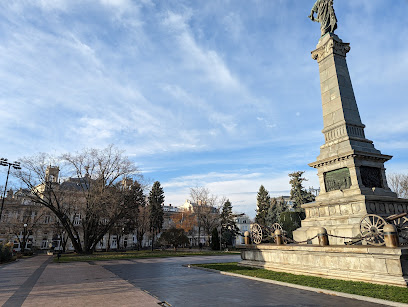
Rock-Hewn Churches of Ivanovo
Discover the Rock-Hewn Churches of Ivanovo, a UNESCO World Heritage site in Bulgaria, where history, spirituality, and stunning landscapes converge.
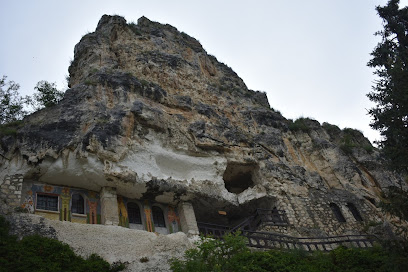
Regional Historical Museum
Explore Ruse's captivating past, from Thracian treasures to medieval frescoes, at the Regional Historical Museum.
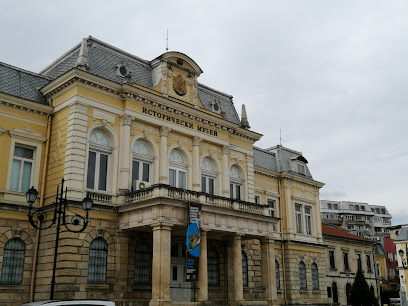
EcoMuseum
Explore the wonders of Bulgaria's natural history at EcoMuseum in Ruse, a captivating attraction for nature lovers and curious minds.
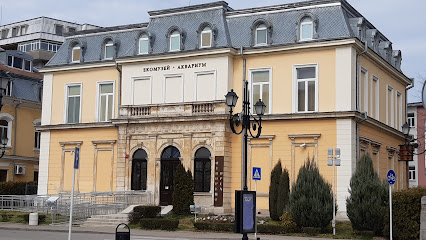
Pantheon of National Revival Heroes
Discover the Pantheon of National Revival Heroes in Ruse, a stunning monument celebrating Bulgaria's rich history and cultural heritage amidst lush parkland.
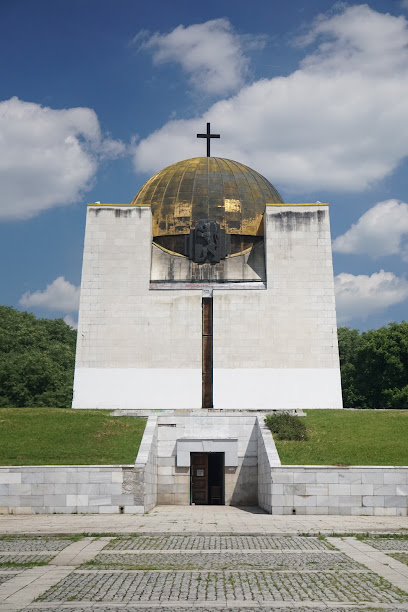
Rozarium
Immerse yourself in the lush beauty of Rozarium in Ruse, a tranquil garden perfect for relaxing strolls and vibrant floral experiences.
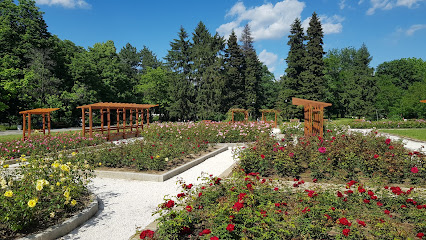
National Museum of Transport and Communications
Explore the evolution of transport and communication at the National Museum of Transport and Communications in Ruse, Bulgaria—an educational gem for all travelers.
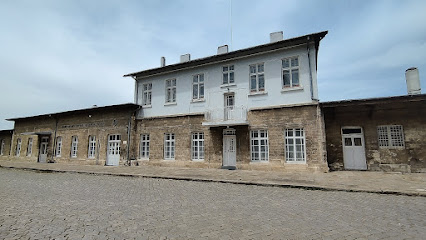
Courthouse
Explore the architectural beauty of Ruse's Courthouse, a historical landmark that showcases the city's rich cultural heritage and stunning design.
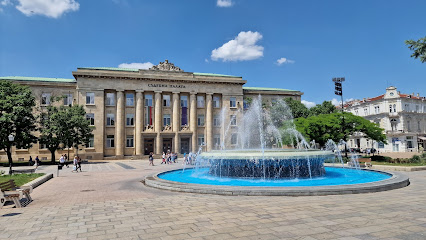
Za RazBIRAchi Craft Beer Bar
Discover over 100 craft beers at Ruse's premier destination for beer lovers. Experience local and international flavors in a cozy, stylish setting.
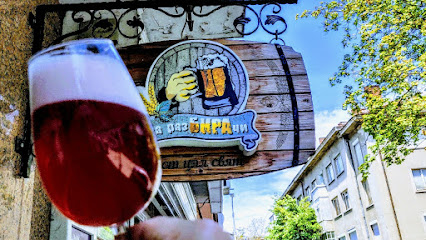
“Sexaginta Prista” Port of the sixty ships fortress
Experience the historical grandeur of the Sexaginta Prista Fortress in Ruse, Bulgaria, where the past and present beautifully converge.
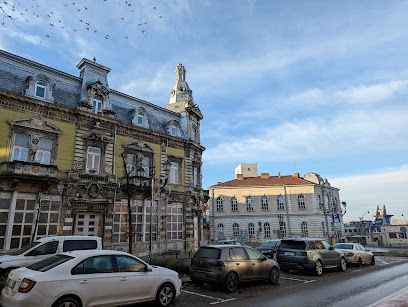
Rusenski Lom Nature Park
Explore Bulgaria's Rusenski Lom Nature Park: Where dramatic canyons meet medieval history and diverse wildlife thrives.
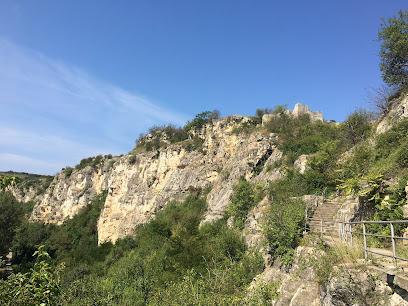
Museum of urban life Kaliopa House
Explore the Museum of Urban Life Kaliopa House in Ruse, a captivating cultural gem revealing Bulgaria's rich urban heritage.
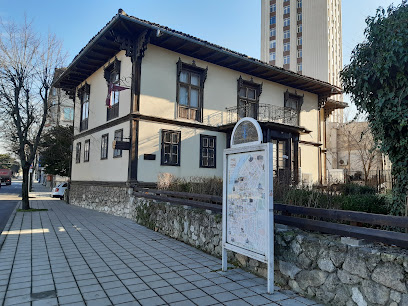
Diamondway Buddhist center
Discover serenity and spiritual growth at the Diamondway Buddhist Center in Ruse – a peaceful escape for mindfulness seekers.
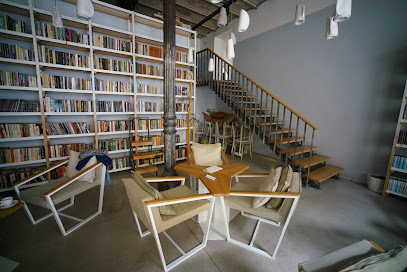
Паметник Баба Тонка
Explore the Baba Tonka Monument—a symbol of Bulgarian heritage and resilience in the heart of Ruse, perfect for history enthusiasts and casual visitors alike.
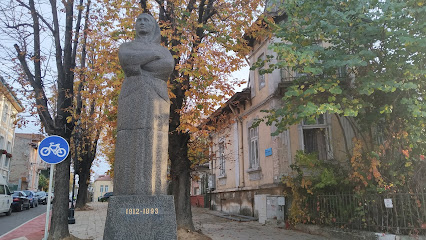
Marvelous Riverside Flat
Discover the perfect blend of comfort and convenience at Marvelous Riverside Flat, the ideal serviced accommodation in Ruse, Bulgaria.
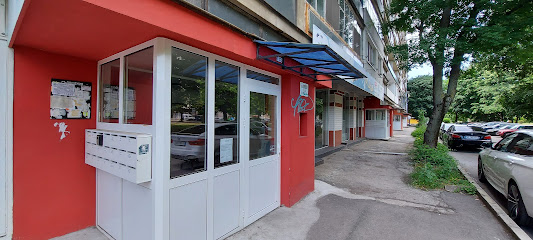
Unmissable attractions to see
Comana Natural Park
Explore the enchanting Comana Natural Park, a nature preserve in Romania, renowned for its lush landscapes and diverse wildlife, perfect for outdoor adventures.
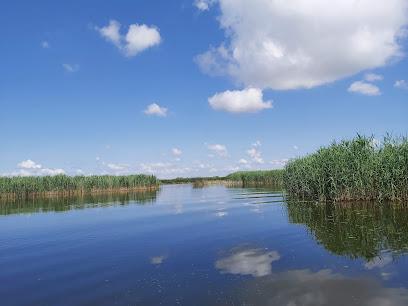
Rock-Hewn Churches of Ivanovo
Discover Bulgaria's hidden gem: medieval rock churches adorned with stunning frescoes in the serene Rusenski Lom valley, a UNESCO World Heritage site.
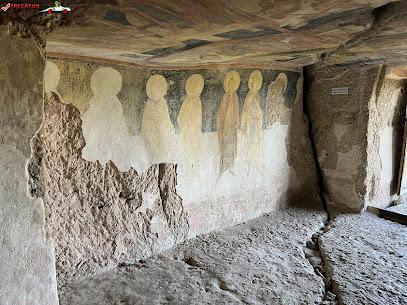
Orlova Chuka Cave
Explore the depths of Orlova Chuka Cave: Bulgaria's second-longest cave, featuring stunning formations and ancient history near Ruse.
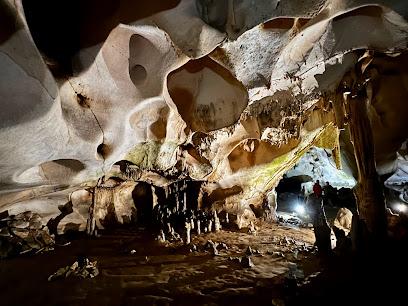
Regional Historical Museum
Explore the captivating history of Ruse and Northeastern Bulgaria at the Regional Historical Museum, housed in a former royal residence.
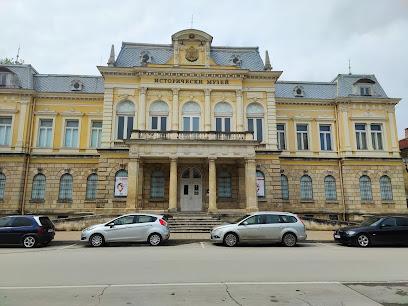
Cherven Fortress
Discover the rich history and stunning views at Cherven Fortress, an archaeological gem in Bulgaria perfect for history lovers and adventurers alike.
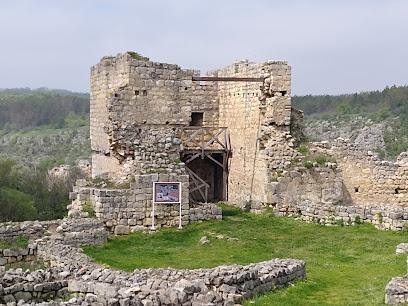
Rock Monastery St. Dimitar Basarbovski
Explore the historic Rock Monastery St. Dimitar Basarbovski, where spirituality meets stunning natural beauty in Bulgaria's tranquil landscapes.
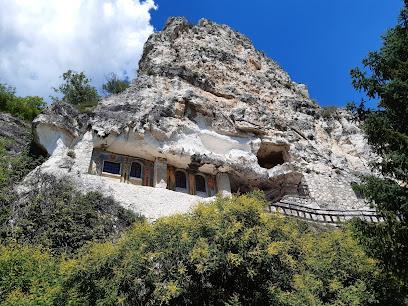
EcoMuseum
Discover the natural wonders of the Danube River region at Ruse's EcoMuseum, featuring a vast freshwater aquarium and interactive exhibits.
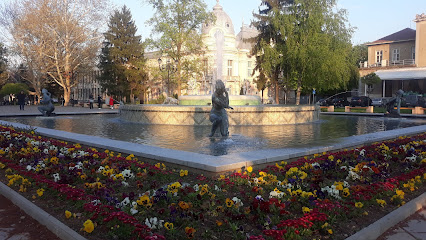
Cherven medieval town
Explore the ruins of Cherven, a medieval Bulgarian fortress, and discover its rich history and stunning natural surroundings near Ruse.
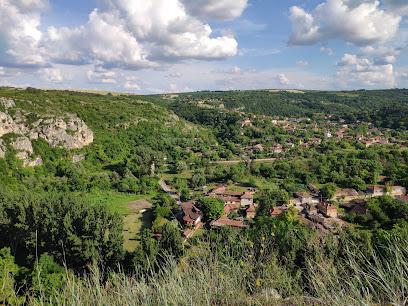
Pantheon of National Revival Heroes
Explore the Pantheon of National Revival Heroes in Ruse, a majestic tribute to Bulgaria's historical figures amidst serene park landscapes.

Rozarium
Explore Rozarium in Ruse: A stunning garden attraction blending natural beauty and tranquility, perfect for relaxation and family outings.
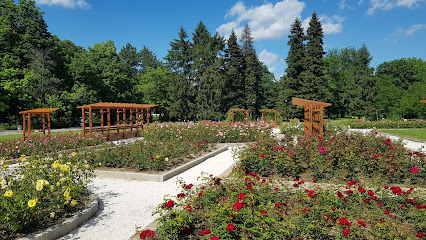
State Opera Ruse
Discover the rich cultural heritage of Bulgaria at the State Opera Ruse, a stunning venue showcasing exceptional performances in a historic setting.
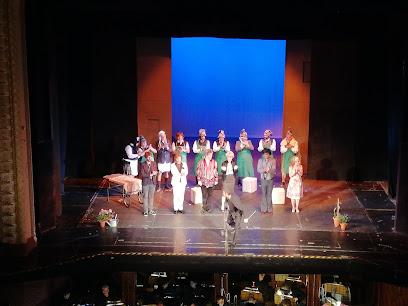
National Museum of Transport and Communications
Explore the evolution of transport and communication at Ruse's National Museum, a captivating journey through Bulgaria's technological heritage.
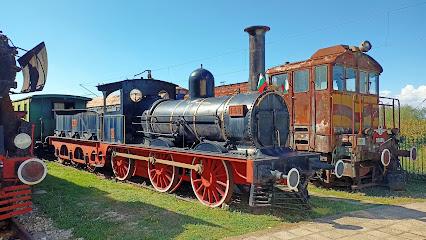
“Sexaginta Prista” Port of the sixty ships fortress
Experience the echoes of history at the ‘Sexaginta Prista’ Port Fortress in Ruse, a captivating blend of ancient architecture and scenic river views.
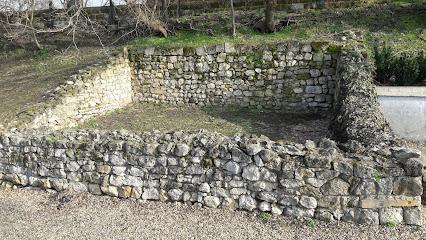
Fountain in front of the Opera House
Discover the enchanting fountain at the Opera House in Ruse, a vibrant symbol of culture and art, perfect for relaxation and photography.
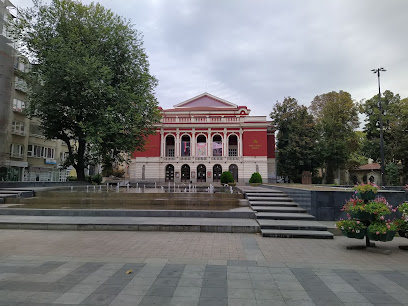
Rusenski Lom Nature Park
Immerse yourself in the breathtaking landscapes and rich biodiversity of Rusenski Lom Nature Park, a serene nature preserve in Bulgaria.
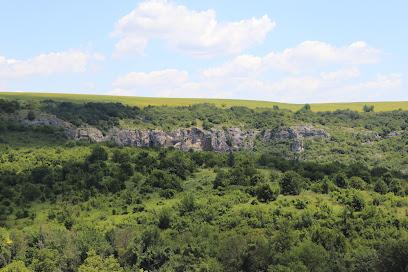
Essential places to dine
Happy Bar & Grill
Discover the perfect blend of European flavors and sushi delights at Happy Bar & Grill in Ruse.
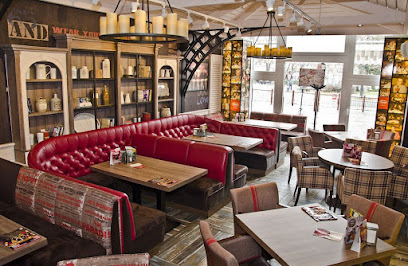
Terassa
Discover Terassa in Ruse: A premier dining destination offering exquisite seafood and BBQ in a warm and inviting atmosphere.
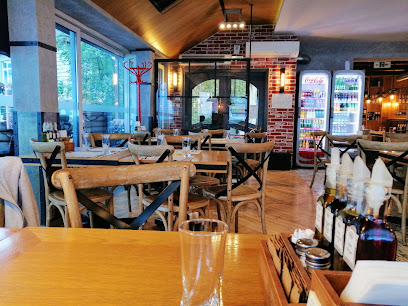
Danube Plaza Hotel
Discover comfort and exquisite dining at Danube Plaza Hotel in Ruse - your gateway to culinary delights and cultural experiences.
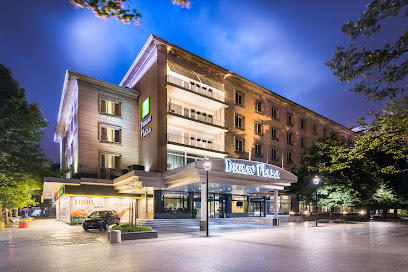
La Strada
Experience the best of Indian, Thai, and Italian cuisine at La Strada in Ruse - where flavors come together in harmony.
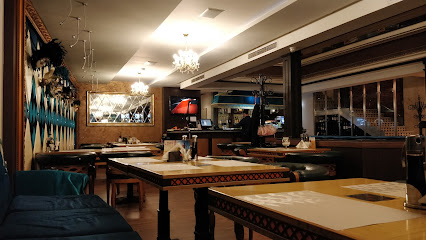
Kompleks Radilon
Discover exquisite dining at Kompleks Radilon in Ruse - where local flavors meet international cuisine in a cozy atmosphere.
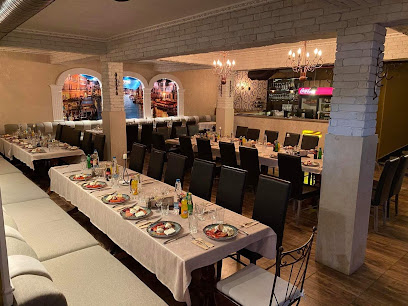
City House Hotel & Restaurant
Experience the heart of Ruse at City House Hotel & Restaurant—where culinary excellence meets warm hospitality in Bulgaria.
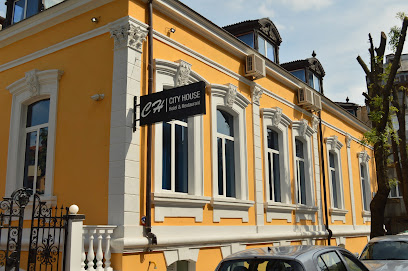
Imperial Restaurant (cafe-ristorante Imperial)
Discover delightful flavors at Imperial Restaurant in Ruse – where tradition meets modern cuisine in an inviting atmosphere.
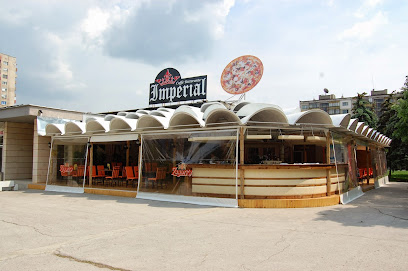
Китайски ресторант Бамбук
Experience authentic Chinese flavors at Bamboo Restaurant in Ruse - a culinary delight in Bulgaria's vibrant city center.
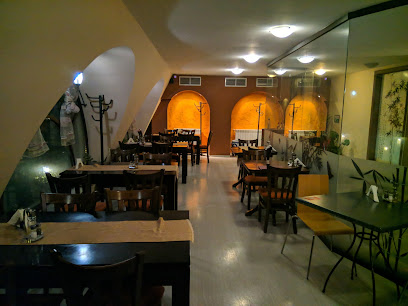
PRISTAN restaurant
Experience authentic Bulgarian flavors at PRISTAN Restaurant in Ruse – where every meal is a celebration of taste and tradition.
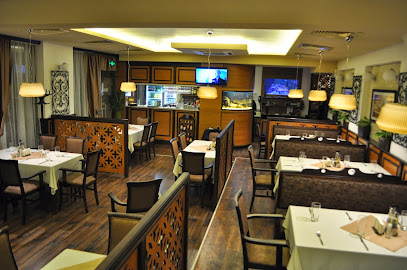
The River bar & dinner
Discover exquisite dining at The River Bar & Dinner in Ruse - where local flavors meet stunning riverside views.
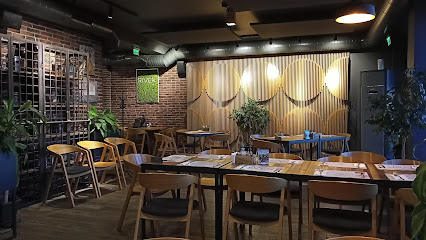
KING BREAKFAST
Savor delicious breakfast delights at King Breakfast in Ruse – where every meal feels like royalty.
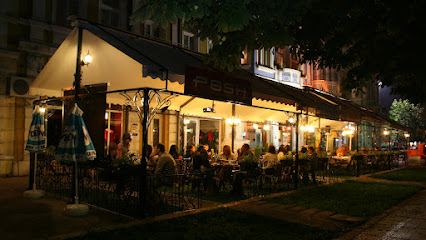
The Godfather
Experience authentic Italian cuisine at The Godfather in Ruse – where every dish tells a story of tradition and flavor.
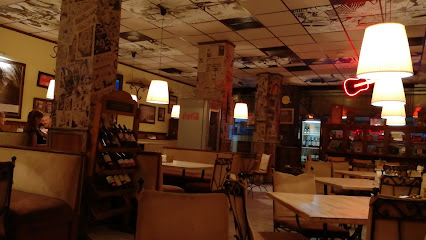
Restaurant “Royal Cinema”
Experience exceptional European cuisine at Restaurant Royal Cinema in Ruse, renowned for its fresh fish dishes and inviting atmosphere.
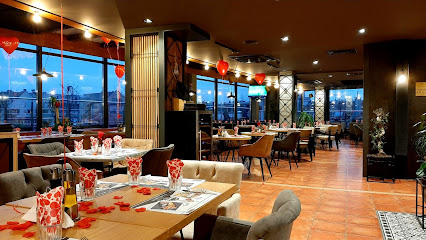
SNACK BAR CAT
Discover delicious dining at Snack Bar Cat in Ruse – where every dish tells a story and every visit feels like home.
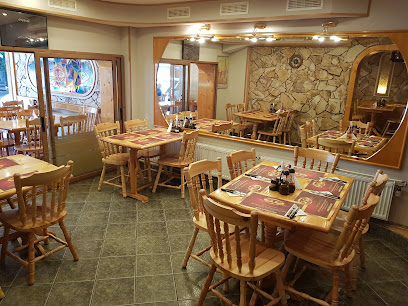
Restaurant Hashove
Experience authentic Bulgarian cuisine at Restaurant Hashove in Ruse - where tradition meets taste in every dish.
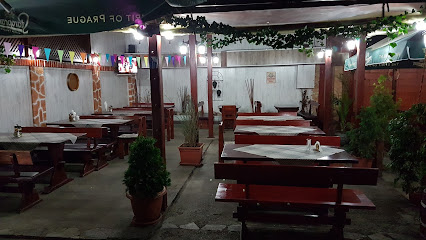
Markets, malls and hidden boutiques
Mall Rousse
Explore the vibrant shopping culture at Mall Rousse, where fashion, dining, and entertainment blend seamlessly in Ruse, Bulgaria.
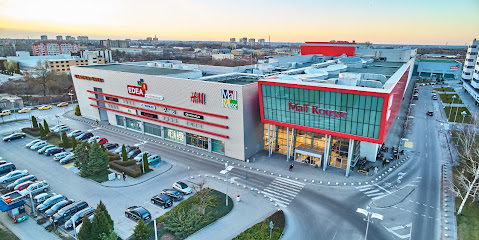
Mr.Bricolage Ruse
Discover a world of tools and home improvement at Mr. Bricolage Ruse, where DIY dreams come to life in this vibrant hardware store.
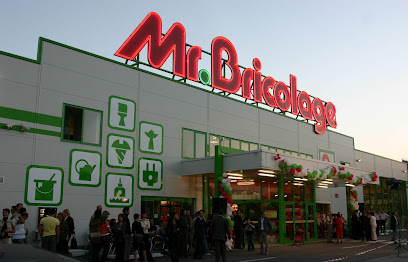
Praktiker Ruse
Explore Praktiker Ruse, a comprehensive home improvement store providing everything from building materials to gardening supplies in a vibrant shopping atmosphere.
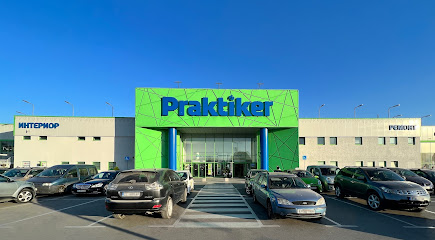
China City
Explore the eclectic fashion offerings at China City in Ruse, a clothing store that reflects local style and contemporary trends.
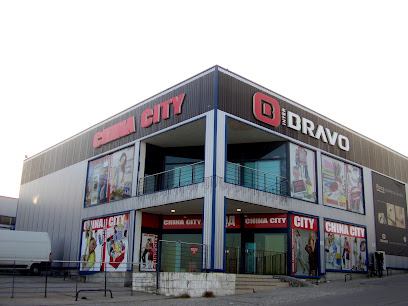
DECATHLON City Ruse Center | Русе Център
Explore a world of sporting goods at DECATHLON City Ruse Center, your one-stop-shop for all things sports in Ruse.
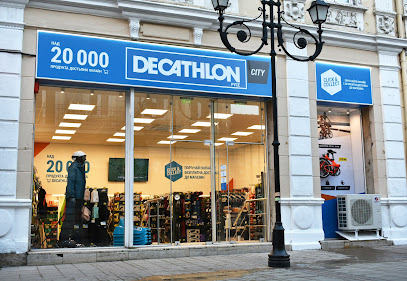
shop Humana - second-hand clothes
Explore Humana in Ruse for sustainable, stylish second-hand clothing that supports eco-friendly fashion choices in Bulgaria.
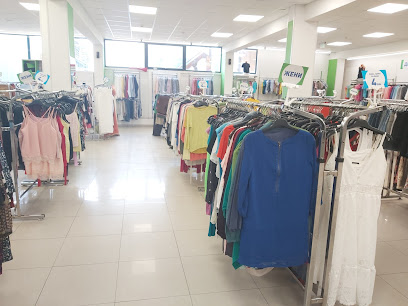
магазин Humana second hand
Explore the Humana Second Hand Store in Ruse for sustainable fashion finds and unique clothing treasures that tell a story.
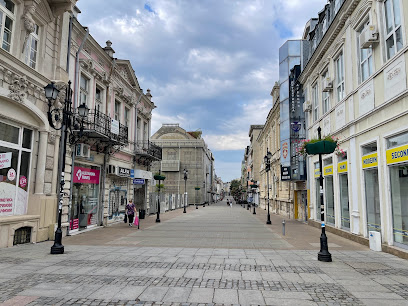
Магазин Боримес
Discover unique local treasures and vibrant culture at Магазин Боримес in Ruse, Bulgaria, perfect for memorable shopping experiences.
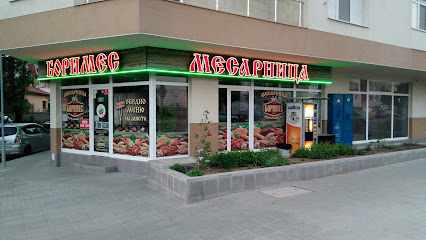
Cheddo Express Borisova
Discover quality baby products at Cheddo Express Borisova in Ruse, Bulgaria, where parenting essentials meet a welcoming atmosphere.
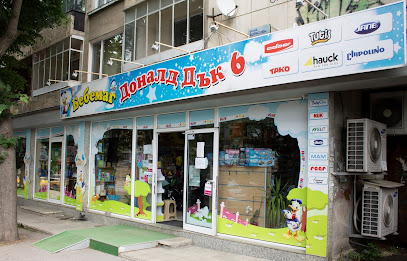
ORIGINAL
Explore the Original Gift Shop in Ruse for unique Bulgarian souvenirs and handcrafted treasures that capture the essence of local culture.
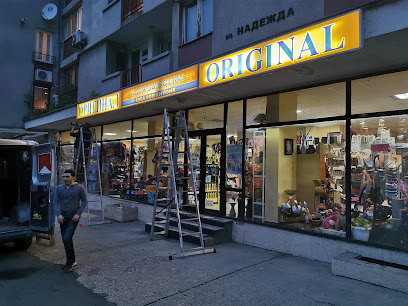
подаръци и сувенири от България
Explore Ruse's vibrant gift shop for unique Bulgarian souvenirs, traditional art supplies, and exquisite handicrafts that embody the local culture.
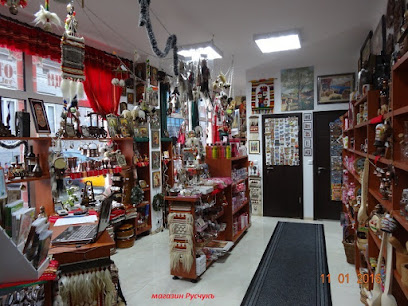
Elgo
Discover authentic Bulgarian crafts and souvenirs at Elgo, a charming store in the heart of Ruse, perfect for tourists seeking local treasures.
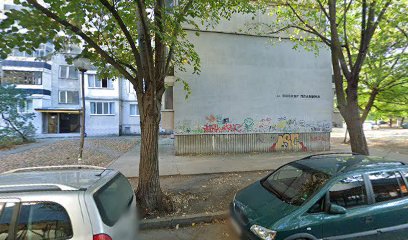
Vento
Explore Vento in Ruse for a unique shopping adventure filled with local styles and trendy fashion pieces.
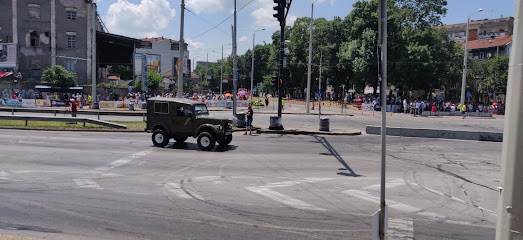
Lena-Velur-Atanasov & Co
Explore the charm of Ruse at Lena-Velur-Atanasov & Co, a store filled with authentic Bulgarian crafts and unique keepsakes.
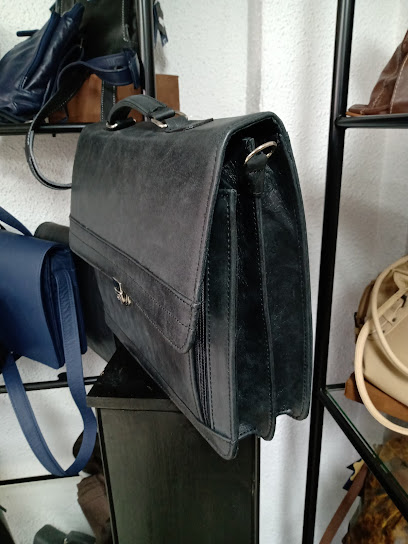
Диди
Explore Диди in Ruse for exquisite bedding and a touch of local craftsmanship, ensuring a comfortable sleep during your travels.
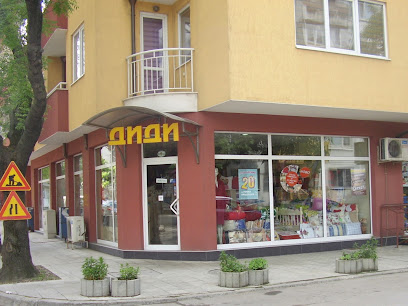
Essential bars & hidden hideouts
Happy Bar & Grill
Experience the vibrant fusion of European and sushi cuisine at Happy Bar & Grill in Ruse, where exceptional flavors meet a lively atmosphere.
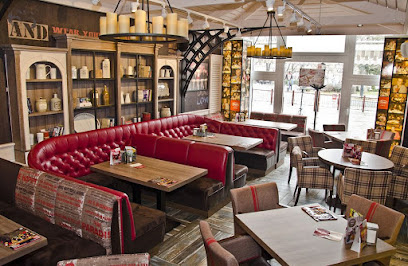
Plan B
Discover the vibrant nightlife at Plan B, Ruse's premier bar, where great drinks and a lively atmosphere await every visitor.
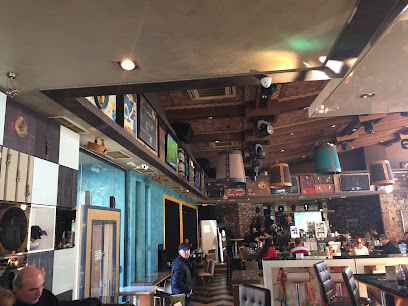
Bellucci Bar
Experience the vibrant atmosphere of Bellucci Bar in Ruse, where great drinks and social vibes come together for a memorable night out.
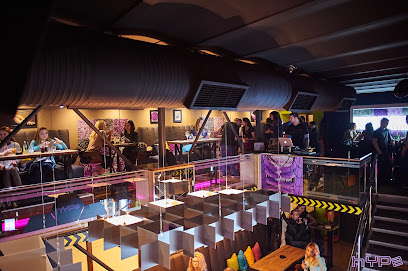
Biga Bar
Discover the vibrant nightlife of Ruse at Biga Bar, where eclectic drinks and a lively atmosphere await.
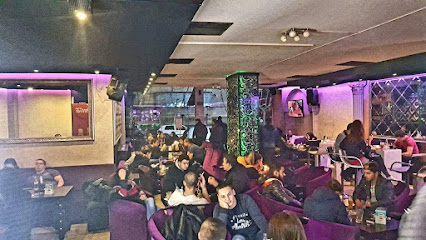
P.R. Cocktail Bar (Пиар)
Experience the lively atmosphere of P.R. Cocktail Bar in Ruse, offering exquisite cocktails and a vibrant social scene that delights every visitor.
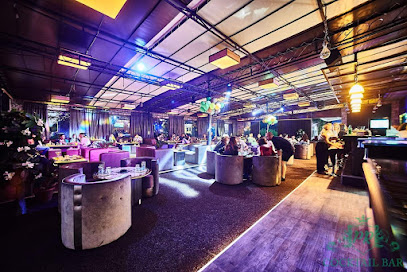
Za RazBIRAchi Craft Beer Bar
Explore the vibrant craft beer scene at Za RazBIRAchi in Ruse, where flavor meets friendship and every sip tells a story.
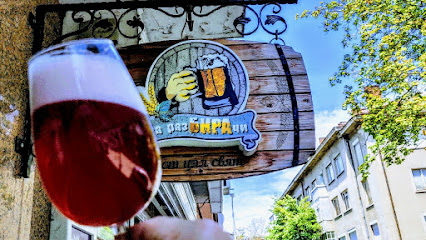
Bowling
Experience a vibrant blend of bowling, dining, and socializing at Ruse's premier Bowling Bar, perfect for tourists and locals alike.
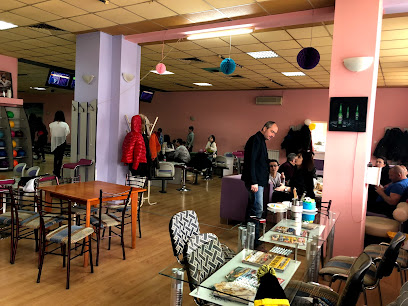
BoardGames Ruse
Experience the vibrant culture of board gaming at BoardGames Ruse, a delightful bar and game store in the heart of Ruse, Bulgaria.
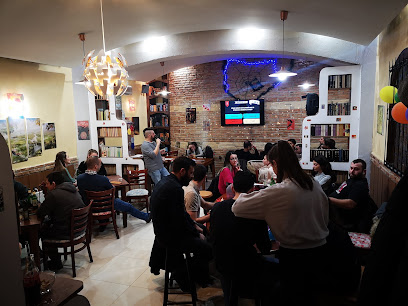
Fresh bar
Discover the vibrant nightlife at Fresh Bar in Ruse, offering an extensive drink menu and delightful atmosphere for an unforgettable experience.
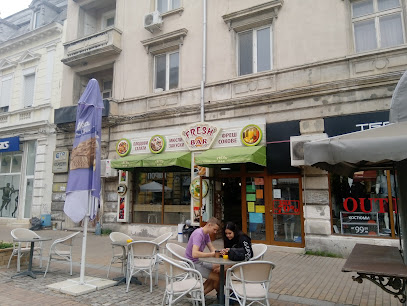
Hoppy Bar - Beer and Grill
Discover Hoppy Bar in Ruse: a vibrant grill and bar offering a delectable menu and an extensive selection of craft beers.
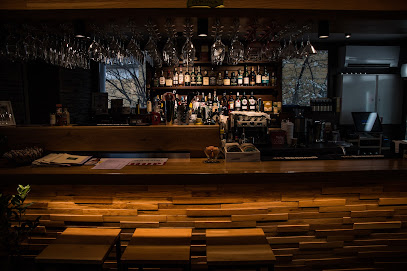
Sofa Wine Bar
Discover the charm of Sofa Wine Bar in Ruse, where exquisite wines and a cozy atmosphere blend to create a memorable experience.
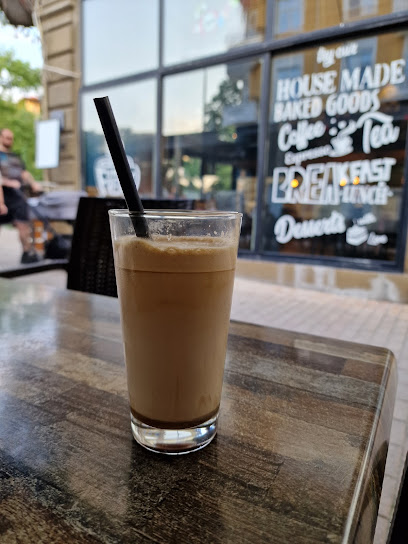
Бар-Клуб Асансьора
Unleash your night in Ruse at Bar-Klub Asansyora - the ultimate bar and night club experience with vibrant music and delicious drinks.
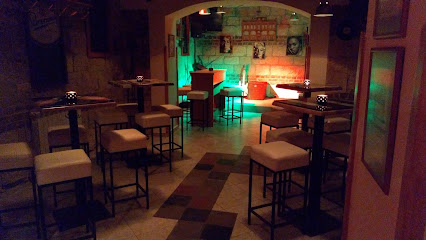
Night Club OZone
Discover the electrifying nightlife at OZone Night Club in Ruse, Bulgaria, where music, dance, and vibrant energy collide for an unforgettable experience.
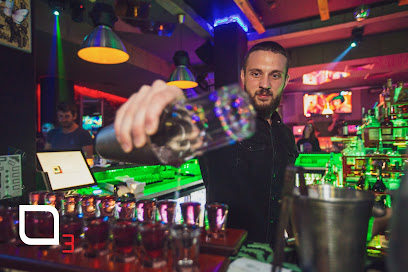
River Craft Beer Shop & Bar
Experience the best of local craft beers at River Craft Beer Shop & Bar in Ruse, Bulgaria - a haven for beer lovers with a cozy atmosphere.
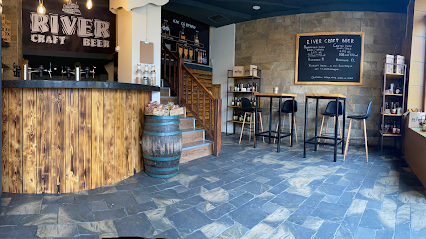
The Basement
Discover the vibrant nightlife of Ruse at The Basement, a trendy bar offering unique cocktails and a lively atmosphere for all visitors.
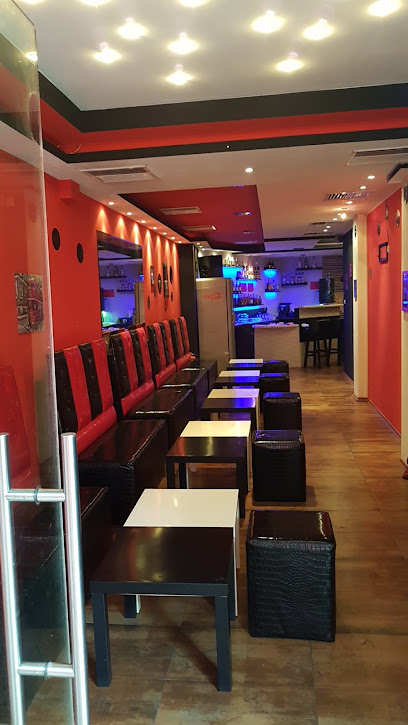
Local Phrases
-
- HelloЗдравей
[Zdravey] - GoodbyeДовиждане
[Dovizhdane] - YesДа
[Da] - NoНе
[Ne] - Please/You're welcomeМоля
[Molya] - Thank youБлагодаря
[Blagodarya] - Excuse me/SorryИзвинете
[Izvinete] - How are you?Как си?
[Kak si?] - Fine. And you?Добре. А ти?
[Dobre. A ti?] - Do you speak English?Говорите ли английски?
[Govorite li angliyski?] - I don't understandНе разбирам
[Ne razbiram]
- HelloЗдравей
-
- I'd like to see the menu, pleaseБихте ли ми показали менюто, моля
[Bihte li mi pokazali menuto, molya] - I don't eat meatНе ям месо
[Ne yam meso] - Cheers!На здраве!
[Na zdrave!] - I would like to pay, pleaseБих искал да платя, моля
[Bih iskal da platya, molya]
- I'd like to see the menu, pleaseБихте ли ми показали менюто, моля
-
- Help!Помощ!
[Pomosht!] - Go away!Отлезте!
[Otlezhte!] - Call the Police!Обадете полицията!
[Obadete politsiyata!] - Call a doctor!Обадете лекар!
[Obadete lekar!] - I'm lostЗагубих се
[Zagubih se] - I'm illБолен съм
[Bolen sam]
- Help!Помощ!
-
- I'd like to buy...Бихте ли искали да купите...
[Bihte li iskali da kupite...] - I'm just lookingСамо разглеждам
[Samo razglezhdam] - How much is it?Колко струва?
[Kolko struva?] - That's too expensiveТова е твърде скъпо
[Tova e tvarde skapо] - Can you lower the price?Можете ли да намалите цената?
[Mozhete li da namalite tsenata?]
- I'd like to buy...Бихте ли искали да купите...
-
- What time is it?Колко е часът?
[Kolko e chasat?] - It's one o'clockЕдин час
[Edin chas] - Half past (10)Половин час след (10)
[Polovin chas sled (10)] - MorningСутрин
[Sutrin] - AfternoonСледобед
[Sledobed] - EveningВечер
[Vecher] - YesterdayВчера
[Vchera] - TodayДнес
[Dnes] - TomorrowУтре
[Utre] - 1едно
[edno] - 2две
[dve] - 3три
[tri] - 4четири
[chetiri] - 5пет
[pet] - 6шест
[shest] - 7седем
[sedem] - 8осем
[osem] - 9девет
[devet] - 10десет
[deset]
- What time is it?Колко е часът?
-
- Where's a/the...?Къде е...
[Kade e...] - What's the address?Какъв е адресът?
[Kakav e adresat?] - Can you show me (on the map)?Можете ли да ми покажете (на картата)?
[Mozhete li da mi pokazhete (na kartata)?] - When's the next (bus)?Кога е следващият (автобус)?
[Koga e sledvashtiyat (avtobus)?] - A ticket (to ....)Билет (за ....)
[Bilet (za ....)]
- Where's a/the...?Къде е...
History of Ruse
-
Ruse, known in ancient times as Sexaginta Prista, was established as a Roman fortress in the 1st century AD. The name Sexaginta Prista translates to 'Port of Sixty Ships,' reflecting its significance as a bustling port on the Danube River. The ruins of the ancient fortress, including remnants of walls, towers, and public buildings, provide a glimpse into the city's early strategic importance.
-
Under Ottoman rule from the late 14th century until the late 19th century, Ruse transformed into a significant commercial center. The city's advantageous location on the Danube River facilitated trade and cultural exchange. The Ottoman architectural influence is evident in several of Ruse's historic buildings, including the Mosques and the Turkish baths, which stand as testaments to this period.
-
Ruse played a pivotal role in the Bulgarian struggle for independence. Following the Russo-Turkish War (1877–1878), Ruse was liberated and became part of the newly independent Bulgaria. The city quickly modernized, establishing itself as a cultural and economic hub. Notable buildings from this era include the Dohodno Zdanie (Profit Building), a symbol of the city's prosperity and architectural elegance.
-
The early 20th century saw Ruse flourish architecturally, earning it the nickname 'Little Vienna.' Influenced by European styles, many of the city's buildings from this period feature neoclassical, baroque, and rococo designs. The Theatre House, the Library, and the Regional Historical Museum are prime examples of this rich architectural heritage.
-
During World War II, Ruse's strategic location made it a focal point of military interest. Post-war, under communist rule, the city saw significant industrialization and urban development. However, this period also brought challenges, including environmental issues due to industrial pollution. Some of the communist-era architecture, such as the Pantheon of National Revival Heroes, reflects the era's ideological influence.
-
After the fall of communism in 1989, Ruse underwent significant political and economic changes. The city began to embrace its historical and cultural identity, restoring many of its architectural gems and revitalizing its cultural institutions. Today, Ruse stands as a vibrant city that seamlessly blends its historical heritage with modern developments.
Ruse Essentials
-
Ruse is located in northeastern Bulgaria, along the banks of the Danube River. The nearest major airports are Henri Coandă International Airport in Bucharest, Romania, about 75 kilometers away, and Sofia Airport in Sofia, Bulgaria, approximately 300 kilometers away. From Bucharest, you can take a bus or a train to Ruse. Alternatively, if you are traveling from Sofia, you can take a direct bus or train, which typically takes around 4 to 5 hours. Car rentals and taxis are also available for a more direct route.
-
Ruse offers several modes of transportation within the city. Public buses are the most common and affordable means of getting around. Taxis are readily available and relatively inexpensive. For a more personalized experience, consider renting a bike to explore the city at your own pace. If you prefer driving, car rentals are available, but be aware that traffic can be heavy during peak hours.
-
The official currency in Bulgaria is the Bulgarian Lev (BGN). Credit and debit cards are widely accepted in hotels, restaurants, and larger shops, but it is advisable to carry some cash for smaller establishments and markets. ATMs are plentiful throughout Ruse, and currency exchange offices are available for converting foreign currencies.
-
Ruse is generally a safe city for tourists, but like any urban area, it’s wise to take standard precautions. Avoid walking alone at night in poorly lit areas and keep an eye on your belongings in crowded places. Specific neighborhoods with higher crime rates include the areas around the Central Railway Station and some parts of the Druzhba district. Always stay vigilant and aware of your surroundings.
-
In case of emergency, dial 112 for immediate assistance. The city has several hospitals and medical facilities, including the University Hospital in Ruse. Pharmacies are widely available for minor health issues and over-the-counter medications. It is highly recommended to have travel insurance that covers medical emergencies.
-
Fashion: Do dress modestly when visiting religious sites. Avoid overly casual or revealing clothing. Religion: Do respect local customs, especially in churches. Cover your head and shoulders when entering a place of worship. Public Transport: Do be respectful and offer your seat to elderly passengers. Don’t speak loudly or play music on public transportation. Greetings: Do greet people with a handshake; a friendly nod or smile is also appreciated. Eating & Drinking: Do try local specialties like banitsa and rakia. Don’t refuse food or drink when offered, as it may be considered impolite.
-
To experience Ruse like a local, visit the lively markets such as the Central Market Hall, where you can buy fresh produce and traditional Bulgarian goods. Engage with locals, as they are often friendly and willing to share stories about the city's history and culture. Don’t miss a walk along the Danube River, where you can enjoy beautiful views and local cafes. For a unique experience, visit the Ruse Opera House, which offers a range of performances in a historic setting.
Trending Landmark in Ruse
-
Monument of Liberty
-
Rock-Hewn Churches of Ivanovo
-
Regional Historical Museum
-
EcoMuseum
-
Pantheon of National Revival Heroes
-
Rozarium
-
National Museum of Transport and Communications
-
Courthouse
-
Za RazBIRAchi Craft Beer Bar
-
“Sexaginta Prista” Port of the sixty ships fortress
-
Rusenski Lom Nature Park
-
Museum of urban life Kaliopa House
-
Diamondway Buddhist center
-
Паметник Баба Тонка
-
Marvelous Riverside Flat
Nearby Cities to Ruse
-
Things To Do in Bucharest
-
Things To Do in Shumen
-
Things To Do in Pleven
-
Things To Do in Gabrovo
-
Things To Do in Pitesti
-
Things To Do in Stara Zagora
-
Things To Do in Varna
-
Things To Do in Craiova
-
Things To Do in Râmnicu Vâlcea
-
Things To Do in Burgas
-
Things To Do in Brasov
-
Things To Do in Haskovo
-
Things To Do in Constanta
-
Things To Do in Focsani
-
Things To Do in Târgu Jiu













